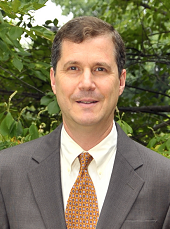ENCE 688e Energy Market Modeling
Course Syllabus
Course Description
The course will cover the fundamentals of energy markets from a modeling and public policy perspective. Optimization and equilibrium models will be presented.
Course Prerequisites
- A course in optimization or a thorough review of optimization/micro-economics
Required Course Text:
-
Complementarity Modeling in Energy Markets, S.A. Gabriel, A.J. Conejo, J.D. Fuller, B.F. Hobbs, C. Ruiz, Springer, anticiapted Fall 2011 (pdf copies of various chapters to be provided)
Other sources as needed
Other Optional Course Texts:
Electric Power
- Electric Power Principles, Sources, Conversion, Distribution and Use, J. L. Kirtley, John Wiley & Sons, 2010
- Electric Power System Basics for the Nonelectrical Professional, S. W. Blume, Institute of Electrical and Electronics Engineers, Inc., 2007.
- Fundamentals of Power System Economics, D. Kirschen, G. Strbac, John Wiley & Sons, 2004.
Natural Gas
- A Nontechnical Guide Trading Natural Gas, F.J. Sturm, PennWell Publishing Company, 1997
- Fundamentals of Drilling Technology and Economics, J.L. Kennedy, PennWell Publishing Company, 1983.
- Natural Gas and Geopolitics From 1970-2040, edited by D.G. Victor, A.M. Jaffe, and M.H. Hayes, Cambridge University Press, 2006.
- The Future of Russian Gas and Gazprom, J.P. Stern, Oxford University Press, 2005.
General Energy/Environment
- Energy and Environmental Policy Modeling, edited by J. Weyant, Kluwer, 1999.
- Emissions Trading Principles and Practice (2nd edition), T.H. Tietenberg, Resources for the Future, 2006.
- Natural Gas Electric Power in Nontechnical Language, A. Chambers, PennWell Publishing Company, 1999.
Course Objective
Provide and overview of models and policy issues in energy markets.
Instructor
Dr. Steven A. Gabriel
Office EGR 1143
Telephone (301) 405-3242; Fax: (301) 405-2585
sgabriel@umd.edu
Grading
The overall course grade will be derived from the following areas:
- Monthly homework (3), Take-home exam (1), Project (1)
The distribution of the grade will be as follows:
- Homeworks: 25%
- Exam: 50%
- Project: 25%
Course Policies
Students are encouraged to attend all lectures since the take-home exam and the homeworks will be closely related to material discussed in lectures.
It is assumed that students will complete the homeworks by themselves although casual discussion with other class members is allowed. No late homeworks will be accepted unless it’s a family or medical emergency. All homeworks, the exam, the project report/presentation should be emailed to sgabriel@umd.edu. Only pdf files with responses typed or GAMS code (as appropriate) will be accepted.
The course is subject to the Code of Academic Integrity available on the web. The Code prohibits students from cheating on exams, plagiarizing papers, submitting the same paper for credit in two courses without authorization, buying papers, submitting fraudulent documents, and forging signatures.
The University has a legal obligation to provide appropriate accommodations for students with disabilities. Please inform Dr. Gabriel of any accommodations needed relative to disabilities. Also, University of Maryland policy states that students should not be penalized due to observances of their religious beliefs. Please inform Dr. Gabriel of such instances well in advance so that appropriate steps can be taken.
Short Bio on Dr. Gabriel
Academic Experience: Besides teaching at University of Maryland, Dr. Gabriel has held appointments in the Mathematical Sciences Department at The Johns Hopkins University, and in the Engineering Management and Systems Engineering Department at The George Washington University. In addition, he has served as a postdoctoral researcher in the Mathematics and Computer Science Division at Argonne National Laboratory.
Industry Experience: Dr. Gabriel has over 25 years of industry and academic experience involving mathematical modeling of engineering-economic systems with applications in energy, transportation, service performance, and operations management. His specialties include optimization/equilibrium modeling, econometrics, decision support systems, and software development. His most recent industry experience includes 5 years as a Project Manager at ICF Consulting (www.icfconsulting.com) involving projects with their oil and gas group (www.icf-oilandgas.com) as well as their electrical power group.
![]()
ENCE688e home | Syllabus | Schedule & Homeworks | Projects | Downloads & Links
